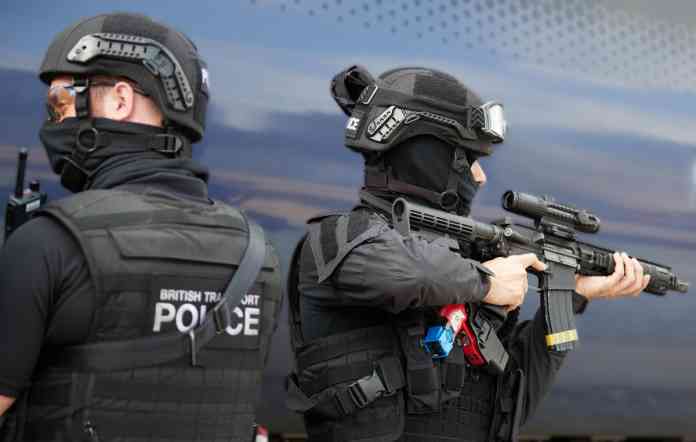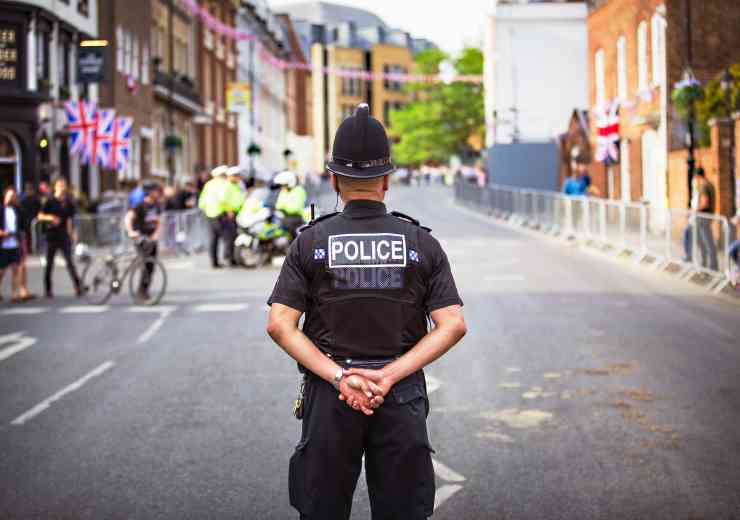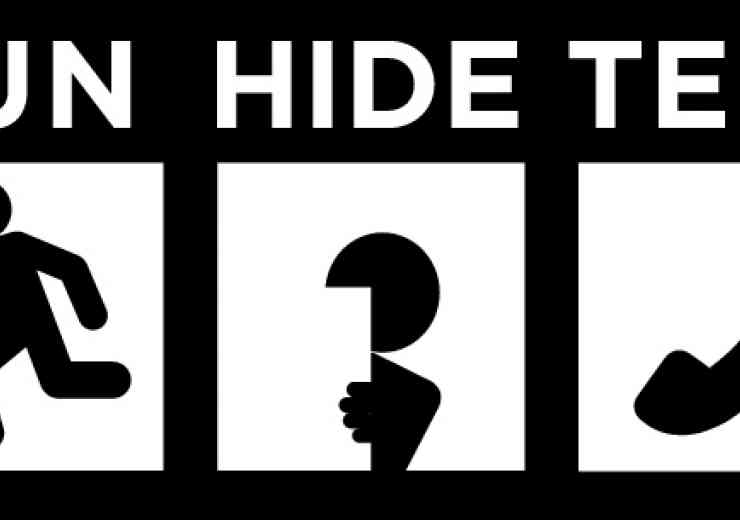
The work of Counter Terrorism Policing over the last 12 months
In the last year, as the country’s collective consciousness has understandably been focused upon the Covid-19 pandemic, the officers and staff of Counter Terrorism Policing (CTP) have quietly continued the 24/7 work of protecting the UK from another serious threat.
Whilst lockdowns, death tolls and vaccinations have somewhat dominated headlines, the UK has continued to face a terror threat that hasn’t dipped below SUBSTANTIAL during the last year, meaning an attack is likely.
To put it more starkly, since the pandemic began CTP and the UK Intelligence Services have foiled three potential terror attacks, despite CT arrests falling to their lowest level for nearly a decade.
There were a total of 185 arrests for terrorism-related activity in the year ending 31 December 2020, 97 (34%) fewer than in the previous 12-month period and the lowest annual total since 2011.
CTP frequently use non-terrorism legislation to make arrests and disrupt terrorist activity, and the overall reduction in crime which occurred during the lockdown period has presented fewer opportunities for officers to do so.
Despite this, CTP and their intelligence partners have still managed to successfully protect the public against three attacks – taking the overall number of foiled plots to 28 since March 2017.
The Senior National Coordinator for Counter Terrorism Policing, Deputy Assistant Commissioner Dean Haydon, believes these statistics tell us two things: “Firstly, that despite facing unprecedented challenges brought about by the pandemic, CTP continued to keep the public safe by making 185 arrests across more than 800 live investigations.
“And secondly, that while the rest of us have been focused on protecting ourselves and our families from a terrible disease, terrorists have not stopped planning attacks or radicalising vulnerable people online.”
So if the threat from terrorism has remained at a high level despite the pandemic, what does that mean for public safety now that restrictions are beginning to ease? And how can businesses, and the public, help CTP to protect the UK against this ever-present threat?
Well, these are the top three issues that CTP is asking businesses and the wider public to help with during 2021.
Young people and the threat of radicalisation
One of the key CT issues to have emerged during successive lockdowns were concerns about a ‘perfect storm’ of potential radicalisation, amongst young people in particular. Assistant Commissioner Neil Basu, head of Counter Terrorism Policing, said: “We are seeing more young people being drawn towards terrorist activity. What concerns me most is this – there has been a sharp increase in extremist material online in the last few years, and Covid-19 has meant that vulnerable people are spending a lot more time isolated and online, and with fewer of the protective factors that schooling, employment, friends and family can provide. In my opinion that is a perfect storm, one which we cannot predict and that we might be feeling the effects of for many years to come.”
Underlying this concern are statistics demonstrating that more children under the age of 18 are being arrested in relation to terrorism offences than ever before. In 2020, 19 children were arrested in relation to terrorism offences. Some were as young as 14 years old, while nearly all will have been radicalised entirely online.
In the same time period, hundreds of children under the age of 15 were helped by the Prevent programme to choose a different path, away from hatred and violence – demonstrating a critical need for CTP to boost awareness of the sometimes life-changing difference early intervention from Prevent can make to those vulnerable to radicalisation.
Family and friends are best placed to spot the signs first; worrying behaviour changes which can indicate that a loved one is heading down a path towards terrorism, however currently just two per cent of referrals into Prevent come from that group of people.
To meet this operational need, CTP created and launched a new service called ACT Early, a dedicated safeguarding website and advice line designed to provide parents, friends and with the specialist support they need to stop their loved ones being drawn into harmful activities or groups. UK Protect Duty.
Since 2017, CTP has worked tirelessly to improve collaboration with the business sector, and recent years have seen us work closer than ever before with UK businesses to address the challenges terrorism presents across the UK.
That is why we welcome the recent launch of the Home Office’s public consultation on the proposed Protect Duty legislation; which considers how we can work together to develop proportionate security measures to improve public security. It also considers how those responsible for publicly accessible locations are ready and prepared to take appropriate action, were a terrorist attack to happen, and how a legislative requirement might support this.
CTP are strong advocates for the Protect Duty and the benefits a legislative framework can provide for the consistent provision of protective security across the country. It is important at this stage that everyone’s voice is heard and we would encourage you and your businesses to contribute to this process.
While she was still Senior National Coordinator for Protect and Prepare, the newly appointed Chief Constable of the British Transport Police, Lucy D’Orsi, explained why she believed putting protective security on a legislative footing would be beneficial for the whole country: “A Protect Duty would transform the UK approach to protective security and ensure we create a hostile environment for terrorists to operate. I firmly believe that a Protect Duty would be transformational for the UK, and it would be as important to protective security as GDPR [General Data Protection Regulation] has been for data handling.”
Visit www.gov.uk/government/consultations/protect-duty for more information, and have your voice heard.
Post-lockdown vigilance
One of the main impacts the pandemic and resulting lockdowns have had on the CT picture in the UK has been the restriction upon free movement, and the shutdown of the crowded spaces that terrorists would normally target during attack planning.
Despite three foiled plots during the last 12 months, these restrictions have made it more difficult for would-be terrorists to plan or enact attacks, and the threat of attack was described as ‘temporarily suppressed’ during this period.
As the easing of lockdown begins in earnest across the country, there are concerns that as crowded places start to fill with people again, there is potential for that risk to come back. That is why CTP has recently launched the ‘Easing Lockdown Vigilance Campaign’ to encourage businesses and the public to support the police’s 24/7 efforts to keep the country safe by remaining vigilant, and reporting anything that doesn’t seem right to security staff or the police.
Businesses are also being asked to update their security plans and ensure any new outdoor spaces opened to meet new regulations have been properly risk-assessed – helping to protect their customers not just against Covid, but terrorism too.
Deputy Assistant Commissioner Matt Twist, who recently replaced Chief Constable Lucy D’Orsi as the Senior National Coordinator for Protect and Prepare, said: “CTP has the vitally important job of reminding everyone that while Covid-19 is still dominating our lives, we must do all we can to prevent another threat from reappearing - terrorism, sadly, has not gone away.
“The best defence against the terrorist threat is a collective community effort - where police, security staff, businesses and the public come together to minimise the chance of attack, and Counter Terrorism Policing have a range of training materials and advice to help businesses improve and update their security plans.”
Counter Terrorism Policing has three actions they wish businesses to carry out during the easing of lockdown restrictions in the coming weeks:
• Arrange for staff to take our Action Counters Terrorism (ACT) Awareness online e-learning course. It is free, takes just 45 minutes to complete and could save lives.
• Review our sector-specific crowded places advice documents, and make sure that you carry out risk assessments on existing sites and any new areas such as outdoor spaces.
• Download the ACT app to your phone to be sure of having the latest official information and updates from Counter Terrorism Policing in your pocket 24/7, and encourage your staff to do the same.
DACSO Matt Twist added: “Our range of ACT products can help you make quick, cost effective improvements to your security plans and help you protect both your business, your staff and your customers. It is yet another example of how collaboration and integration between police and the private sector can enhance national security and how we can collectively work together to make all our communities safer.


















